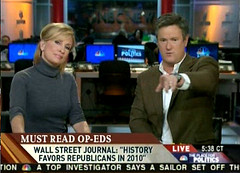
Greg Moore: “In retrospect, I don’t trust anything or anybody.” Photo (cc) 2021 by Dan Kennedy.
The Boston Globe, as promised, has published an epilogue to its series on the Carol and Charles Stuart case that takes on “the media’s sins.” That reckoning takes the form of a commentary by columnist Adrian Walker, one of four reporters on the project and the narrator of podcast version. Super-brief recap: In October 1989, Charles Stuart, a white man from the suburbs, murdered his pregnant wife in Mission Hill and was seriously injured himself. He blamed it all on a “Black man” and jumped to his death from the Tobin Bridge several months later while the police were closing in.
Not surprisingly, a good chunk of Walker’s piece focuses on former Globe columnist Mike Barnicle, who wrote several racist columns as well as a news story that turned out to be false about an insurance scheme Charles Stuart had supposedly concocted. As Walker observes, Barnicle was fixated on trashing the lead suspect in the case, William Bennett, even after Bennett had been exonerated following Stuart’s fatal jump. I quoted from one of those columns last week, and Walker cites another in which Barnicle made much of Bennett’s seventh-grade report card. Barnicle wrote of Bennett:
The man’s pathetic, violent history is so much a part of the unyielding issues of race, crime and drugs tearing daily at America that it is amazing how any black minister or black politician could ever stand up and howl in public that his arrest was a product of police bigotry and a volley of discrimination aimed at all black residents of Boston.
Remember, this was published after Bennett had been cleared. But as Walker writes, Barnicle was carrying water for the Boston Police, including his brother, the late Paul Barnicle, a homicide detective. Barnicle, not surprisingly, refused to give a substantive interview to the Globe.
We also hear quite a bit from Renée Graham, who, like Walker, was a young reporter at the Globe in 1989 and is now a columnist. The perspective of two Black journalists, Walker and Graham, is fascinating, especially since Walker believes the city’s media coverage of race has improved more (but not enough) than Graham does. “I don’t know that journalism has gotten better since the Stuart case,” Graham said. “You know, I think that the media still is attracted to heat, not light. Like you always say, this is what changed everything. But it didn’t change anything. I mean, look, they couldn’t even write a damn correction, a change, nothing.”
Also quoted is Greg Moore, who at the time was the Globe’s assistant managing editor for local news, later rose to become managing editor (No. 3 in the hierarchy), and still later became the top editor at The Denver Post — the most prominent Black editor in the country until Dean Baquet became executive editor of The New York Times. “In retrospect, I don’t trust anything or anybody,” Moore told the Globe. “You know, if somebody tells me something like that, I want to know exactly, what is that based on? And again, I think that’s another legacy of Stuart, at least for me.”
What struck me more than anything in reading the series was the disproportionate amount of attention given to the murder at a time when people of color were meeting the same fate on a regular basis. Indeed, Walker revisits a story that then-Globe reporter Eileen McNamara wrote explicitly to draw that contrast. As McNamara wrote: “James Moody, 29, was shot to death only a few hours after a robber attacked Carol and Charles Stuart outside Brigham & Women’s Hospital Monday night. But no calls were heard at the State House for tougher sentencing practices.”
Like the Stuarts, I’m white and I live in the suburbs, so I have no direct experience with the racism that people of color continue to experience every day. It seems better, and I guess it is. If an incident similar to the murder of Carol Stuart happened today, I think the police and the media would be much quicker to ask questions about the husband’s role. And yet I’m sure that such incident would still draw outsize attention. Look at how quickly the Black Lives Matter movement that reignited after the police killings of George Floyd and Breonna Taylor curdled into renewed fears of crime, even though statistics showed that there had been very little in the way of an upsurge.
Let’s give the last word to Walker: “For a time, the case sparked an unusual spate of self-examination in the press. But the questions it raised — about how to cover communities of color and about whose stories are valued — were never resolved and resonate to this day.”






